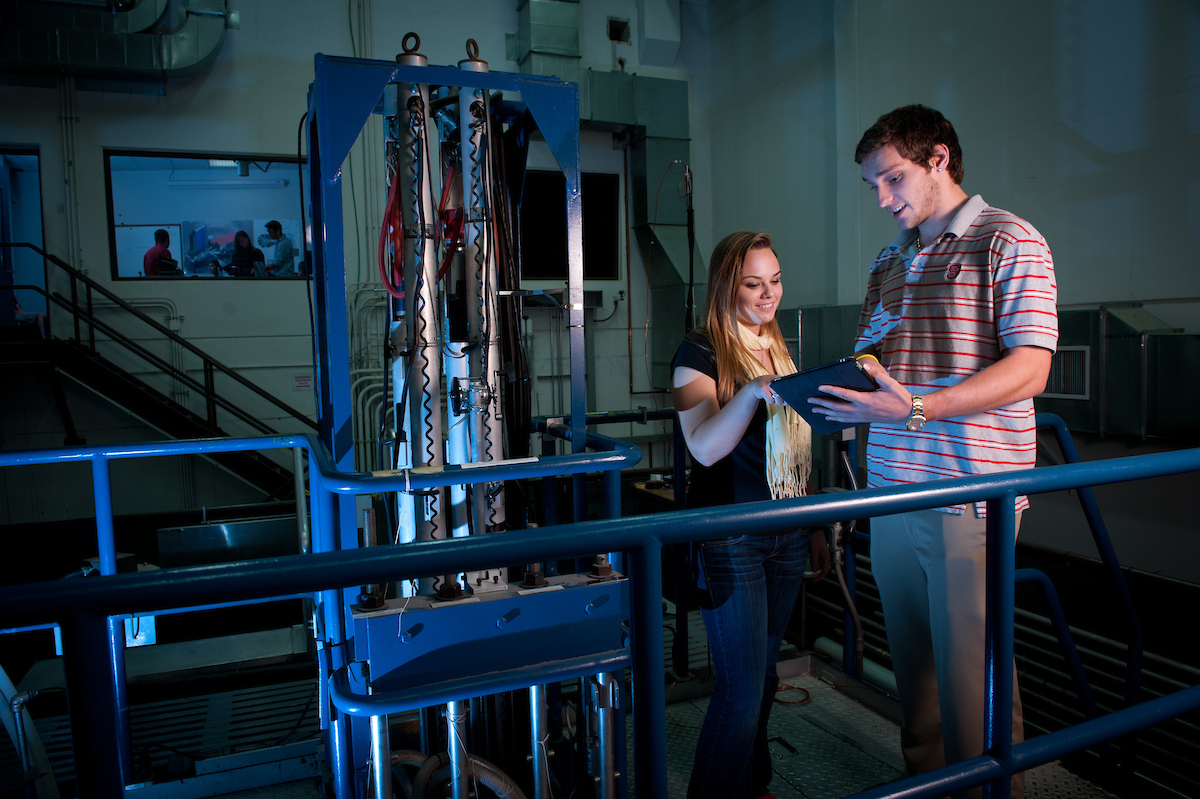User Guide

NRP User Guide
The PULSTAR Reactor user facilities, irradiation facilities, internet reactor laboratories, and analytical services provided by the Nuclear Services Laboratory are available for use by academic research faculty and staff within the UNC system or at other academic institutions, and by governmental agencies and industries in the State of North Carolina, the United States, and the international community.
The PULSTAR Reactor Laboratory is a partner facility of the DOE Idaho National Laboratory Nuclear Science User Facilities (NSUF) consortium. This collaboration is designed to increase user access to state-of-the-art irradiation and testing capabilities, including those available at the PULSTAR reactor. The NSUF Rapid Turnaround Experiment (RTE) program makes these facilities available at no cost to users whose projects are selected via a peer review process.
The PULSTAR is also part of the Research Triangle Nanotechnology Network (RTNN), a consortium of user facilities and over 100 complementary faculty research programs at NC State University, UNC Chapel Hill, and Duke University. RTNN technical capabilities span nanofabrication and nano-characterization of traditional hard, dry materials (e.g., 2D and 3D nanomaterials, metamaterials, photonics, and heterogeneous integration) and emerging soft, wet materials (e.g., tissue, textile, plant, and animal nanomaterials).
Please reference the links above for detailed information about the the PULSTAR’s non-destructive examination and irradiation capabilities. Additional details may be found in the NRP User Guide.
Please contact the Manager of Nuclear Services for more information about how to access and utilize the NRP facilities.
Instructions for Utilization and Facility Access:
Off-Site Utilization – users interact remotely with the reactor staff and/or services center staff to accomplish their project:
- Nuclear Services Center – The Nuclear Services Center staff work with the user to design and carry out the experiment and/or analysis, and provide the results to the user. Analytical or irradiation work such as neutron activation analysis, neutron radiography, neutron diffraction, reactor irradiations, isotope production, and radio-assay may be accomplished in this manner.
- Internet Reactor Laboratories – The user institution selects which internet reactor lab, or series of labs, they would like to provide to their students. The user institution may elect to have their own faculty teach the lab, or arrange for reactor program staff to teach the lab.
On-Site Utilization – users work on-site with reactor operations and/or Nuclear Services Center staff to accomplish their project. In evaluating the type of access required to accomplish the users project, there are a few basic questions to answer:
- A. Is access to the reactor laboratory required by user personnel?
If the answer is yes, then will user personnel:
a) Need infrequent or occasional (i.e., Escorted) access during regular business hours, or
b) Need routine (i.e., Un-escorted) access during regular business hours?
If (a) infrequent or occasional escorted access is required (e.g., for a tour of the facility, or for the initial setup of an experiment), then this may easily be scheduled with reactor staff.
If (b) routine un-escorted access will be required (e.g., for running experiments over a long time period), then a security background check and site safety training will be required. - B. Will user personnel need to handle radioactive material or work with radiation beams?
If the answer is yes, then user personnel will need to take radiation safety training before starting work. - C. Will user need to take radioactive material (e.g. irradiated sources or samples) off-site?
If the answer is yes, then the user institution will need to provide a copy of a current Radioactive Material License. For on-campus users, a Radioactive Materials Permit will have to be issued from the campus Radiation Safety Office.
Please contact the Manager of Nuclear Services for more information about how to access and utilize the NRP facilities.